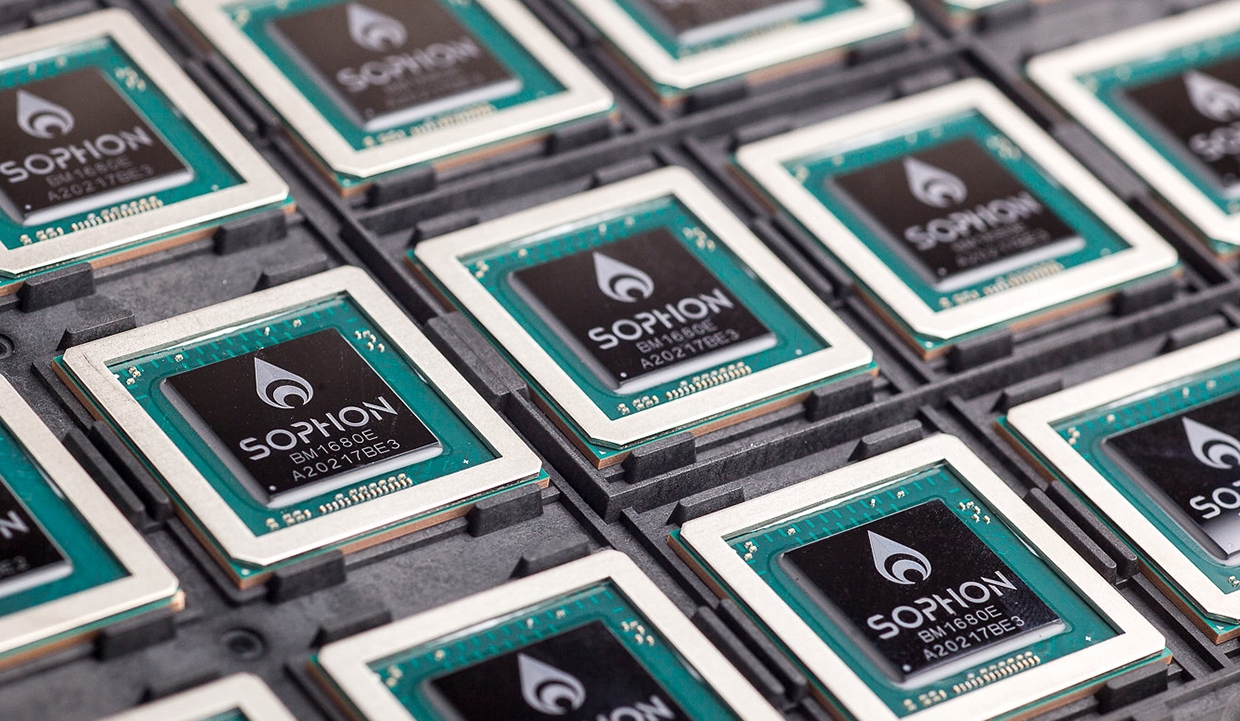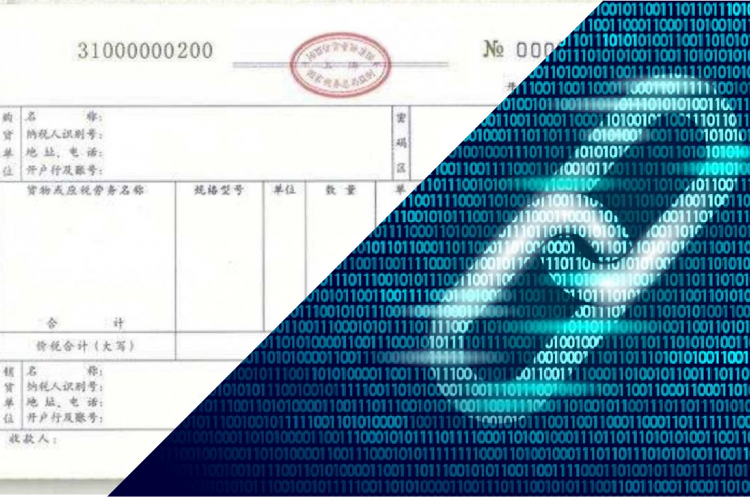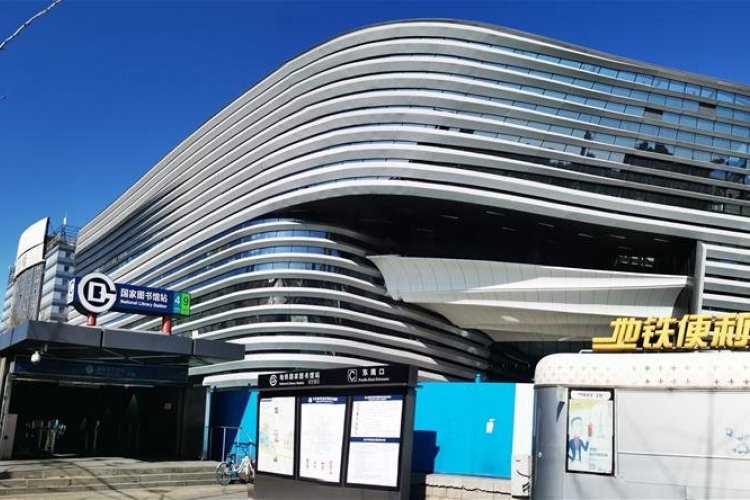How the World's Largest Bitcoin Miner Is Taking on AI's Most Powerful Players
This post comes courtesy of our content partners at TechNode.
“In the future, AI will be everywhere,” said Bitmain product marketer Allen Tang while explaining how the biggest bitcoin mining equipment producer in the world plans to conquer artificial intelligence.
“It will be on cars, it will be on cameras, it will be on servers, in the back end,” he continued. “It’s just like the motor vehicle replacing the horse – it’s a big-time change that can dramatically alter the world. We think that’s a big trend and we need to do that.”
Founded by Jihan Wu and Micree Zhan, Bitmain dominates the cryptocurrency mining business. The Chinese company started mining and selling its Antminer mining rigs in 2013. In just four short years, it reached USD 3 billion to USD 4 billion in yearly operating profits, according to US financial analysis company Bernstein.

The company has been involved in a fair share of controversies, including accusations of monopolizing the mining business and undermining bitcoin itself. Nowadays, it looks like Bitmain wants to change its image from the shovel seller that gets rich on miners during a gold rush into a forward-looking innovator.
“If Bitmain wants to transform from a simple mining company to a tech giant, they need to get into AI, big data, etc.,” said Zarc Gin, fintech and blockchain analyst and reporter at InsurView. “That’s how you can improve your influence. And they certainly have the budget.”
According to Tang, Bitmain’s foray into AI started in 2015, long before China’s regulators started viewing cryptocurrencies with suspicion. Their AI chip division Sophon – named after the alien technology in Liu Cixin’s sci-fi trilogy The Three Body Problem – aims to “solve all the puzzles in the universe,” or in layman’s terms, accelerate AI applications with the help of chips called ASICs ( application-specific integrated circuit).
Unlike CPU and GPU which are made for general purposes, ASIC silicone chips are designed for a specific task. One example is the complex mathematical tasks performed in cryptocurrency mining but they can also be used in machine learning. You can think of them as two types of workers: one can perform various roles pretty solid but lacks expertise. The other is excellent at one task but doesn’t know anything else. This is what Tang, a former Intel Product Marketing Manager for AI and HPS, sees as ASICs biggest plus.
“When companies like Intel and Nvidia build general purpose chips, they are building an ecosystem for everything, for running 100 or 200 applications. But when they run a specific application they may only utilize 1 percent of the chip’s capacity,” he said. “ASIC is dedicated to a special application which it can run very well and it can be ten or a hundred times more energy efficient than CPU.”
Bitmain’s ASIC challenge
In October last year, Bitmain released its customized AI ASIC for tensor computing acceleration. The Sophon BM1680 is designed for deep learning training and inference of neural networks. The chip is similar to Google’s own custom ASIC for deep learning TPU (Tensor Processing Unit) tailored for Google’s open-source machine learning framework, TensorFlow. Google released its TPU in beta on the Google Cloud Platform in February.
The question is: can Bitmain match the bigger players? It’s not just Google, either. Intel and NVIDIA are not only improving their GPUs but also experimenting with ASIC for AI. According to Moor Insights & Strategy senior analyst Karl Freund, ASIC chips are very difficult to design and build, even for a top-notch engineering team. Many companies have trouble recruiting the AI or neuroscience talent they need to get and stay ahead of companies like Nvidia or Intel, he said.

“It is important to understand the ecosystem of software, libraries, researchers, and scientists needed to go from a fast chip to a fast growing and large business. Building a chip that can support Baidu or Alibaba is tough, but building a sustainable global business is much much harder.”
Freund is somewhat skeptical about the future of ASIC chips in AI. ASIC designers freeze the logic behind the chip early in the development process and are unable to react quickly when new ideas emerge in a fast-moving field like AI. ASICs in AI may find the same fate as workers who specialize in only one field and then find that technology has upended it.
“An ASIC may have higher performance, lower costs, and lower power for the application for which it was designed. However, it may cost USD 50 million to USD 100 million to develop, and cannot be repurposed for a different app or algorithm,” said Freund.
Mining is just the beginning
Bitmain isn’t the only Chinese cryptocurrency mining company going into artificial intelligence. China-based bitcoin mining chip makers Canaan Creative and Ebang have also set their eyes on AI. While Ebang’s plans seem more like an aspiration for now, Canaan Creative has been bolder. The company received a Series A of RMB 300 million (USD 43 million) in May 2017 and announced their plans to complete a new ASIC aimed at the AI market that year. TechNode reached out to the company to find out more but our questions went unanswered.
“There’s no denying the popularity of cryptocurrency and the blockchain. AI has a very similar amount of hype and excitement around it and I believe that Bitmain may be building on this excitement,” Anshel Sag, associate analyst for Moor Insights and Strategy, told TechNode.
Sag believes companies like Bitmain are going into AI for several reasons. For one thing, AI training is very computer intensive just like cryptocurrency mining. Bitmain may be preparing for home-grown demand and possible future requirements for using Chinese-made chips.
“Bitmain is a Chinese company so they may also get more preferential treatment within China as the Chinese government and Chinese companies start to use AI more and need more AI computing horsepower,” said Sag.
Bitmain is also a relatively big player in the semiconductor space. According to Sag, the company may be looking for ways to secure a good price for materials used for building chips such as wafers from TMSC, the world’s largest dedicated independent semiconductor fabrication plant.

According to Gin, Bitmain is likely to continue funding its operations from the lucrative mining business. The company holds 70 to 80 percent of market share in bitcoin miners and ASIC chips for mining, according to Bernstein. It also makes money from Antpool which is one of the world’s biggest mining pools (groups that share processing power to mine blocks in a blockchain). Aside from Sophon, Antminer, and Antpool, it has built a cryptocurrency exchange platform named BTC.COM and cloud mining platform Hashnest. The firm has also invested in tech companies in the US but has not revealed their names.
Bitmain says it now employs around 1,000 people. During the last year, the company has been expanding its operations into countries such as US, Israel, and Singapore with their newest office opening in Switzerland’s Zug. The company has been recruiting staff, including machine learning experts, across China, Switzerland, Israel, the Netherlands, and Taiwan.
As Tang explained to TechNode, Sophon will focus on video analysis while the company has also bought a robotics firm to explore user scenarios. The bulk of their approximately 100 – unnamed – customers are in public security industry or internet companies.
Tang also said that China has managed to catch up with global AI forces in two out of three areas that define the AI industry – data and algorithms. Computing or chips is one of the areas where the country still has room to evolve. He also believes that blockchain and AI are the “left leg and the right leg of the future.”
“They will both have trillions in the market in 10 years, we need to start investing now.”
Photos: TechNode, Sophon, Bitmain







